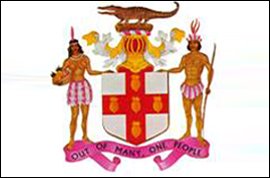

MPs have responsibilities to two main groups: their constituents and to Parliament. One MP is elected to the House of Representatives by each of Jamaica’s 60 constituencies.
MPs’ duties in Parliament include participating in debates and voting on legislation and other matters. They may also be members of committees examining new laws or the work of government departments. Some have a role as a minister in government or a spokesperson in opposition. MPs can help their constituents by advising on problems (particularly those that arise from the work of government departments), representing the concerns of their constituents in Parliament and acting as a figurehead for the local area.
How to Contact Your MP?
It is often best to contact your MP first in writing;
letters, faxes or emails enable you to explain things clearly and in detail so that your MP can consider your problem carefully before trying to help you.
You can write to any MP at:
Houses of Parliament
Gordon House,
Duke Street, Kingston.
All MPs have Parliament mailing addresses or have arrangements for their mail to be dealt with or redirected when they are away from Kingston, so it is much better to write to them there, rather than to their constituency office.
You can telephone any MP at his constituency office.
Peter Bunting can be reached by telephone toll free at:
1-888-BUNTING,
or by mail at his constituency office at:
Shop #34
5 ½ Caledonia Road,
Mandeville, Manchester,
or by email to info@bunting.org.jm
or via his website at www.bunting.org.jm
If an MP has an office in his constituency, you should be able to find the telephone number in the local telephone directory under “Members of Parliament”. Not all MPs have published email addresses or websites.
Most MPs hold ‘surgeries’ or appointments in their constituencies where local people can bring their problems. To find out the dates of surgeries and to arrange an appointment you should call your MP’s constituency office.
How can your MP help?
MPs are generous with their advice, and they will generally try to assist their constituents with a wide range of problems. There is no job description for an MP and it is up to an individual MP which cases he takes on. However, MPs are more likely to be able to help with problems concerning central government services such as:
* Benefits, pensions, national insurance, and other matters dealt with by the relevant Ministries and Agencies;
* Immigration and other problems;
* Tax problems involving the Inland Revenue Department, Customs and Excise;
* Problems with the NHF;
* School grants and closures
Problems with local authority services can be raised with a local councillor.
Your MP will generally do everything he or she can to help constituents but will not be able to support every cause and may feel that they are not the best person to help. If they are unable to help they may refer you to someone more appropriate such as a local councillor, or a representative of another local organisation. For legal advice, you may be referred to a solicitor or attorney.
Adapted from “The Role of an MP” available from the website of the United Kingdom parliament at
http://www.parliament.uk/documents/upload/YAYMP_English.pdf
